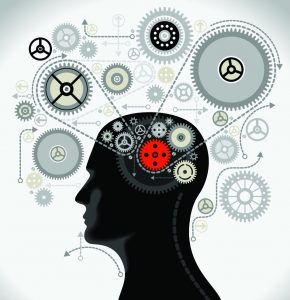 When people rationalize something, that means they are reconfiguring their beliefs, attitudes or opinions in order to make that something more palatable. For instance, if your favourite political party loses an election, you might rationalize that by playing up the pros of the winning party, or by downplaying how much you care about politics. As another example, if you cheat to win a bet with your friend, you could rationalize that by minimizing the cost to your friend of losing the bet, or by exaggerating your memory of a past offense your friend had committed against you.
When people rationalize something, that means they are reconfiguring their beliefs, attitudes or opinions in order to make that something more palatable. For instance, if your favourite political party loses an election, you might rationalize that by playing up the pros of the winning party, or by downplaying how much you care about politics. As another example, if you cheat to win a bet with your friend, you could rationalize that by minimizing the cost to your friend of losing the bet, or by exaggerating your memory of a past offense your friend had committed against you.
In our lab, we study the factors that cause people to rationalize—for instance people are more likely to rationalize things they cannot change. We also study the factors that prevent them from doing so—for instance, because rationalizing entails self-deception, it’s more difficult for people to rationalize when they can catch themselves in the act.
Our current projects aim to uncover the function of rationalization—why do we do it? Is it just to make ourselves feel better? Or is there something useful about it… stay tuned!
*A good deal of current research in the lab focuses on this topic*
Laurin, K. & Jettinghoff, W. M. (2020). What kind of rationalization is system justification? Behavioral and Brain Sciences, 43, e39. [commentary]
Engstrom, H. R., Alic, A., & Laurin, K. (2019). Motivated justice cognitions. In E. A. Lind (Ed.), Social psychology and justice (pp. 46-74). New York: Routledge.
Laurin, K. (2018). Inaugurating rationalization: Three field studies find increased rationalization when anticipated realities become current. Psychological Science, 29, 483-495.
Laurin, K., Kay, A. C., Proudfoot, D., & Fitzsimons, G. J. (2013). Response to restrictive policies: Reconciling system justification and psychological reactance. Organizational Behavior and Human Decision Processes, 122, 152-162.
Laurin, K., Kille, D. R., & Eibach, R. P. (2013). “The way I am is the way you ought to be”: Perceiving one’s relational status as unchangeable motivates normative idealizations of status. Psychological Science, 24, 1523-1532.
Laurin, K., Gaucher, D., & Kay, A. C. (2013). Stability and the justification of social inequality. European Journal of Social Psychology, 43, 246-254.
Laurin, K., Kay, A. C., & Fitzsimons, G. J. (2012). Reactance versus rationalization: Divergent responses to constrained freedom. Psychological Science, 23, 205-209.
Laurin, K., Kay, A. C., & Shepherd, S. (2011). Self-stereotyping as a route to system justification. Social Cognition, 29, 360-375.
Laurin, K., Shepherd, S., & Kay, A. C. (2010). System inescapability and defense of the status quo: System-justifying consequences of restricted exit opportunities. Psychological Science, 21, 1075-1082.
Kay, A. C. Gaucher, D., Peach, J. M., Friesen, J., Laurin, K., Zanna, M. P., & Spencer, S. J. (2009). Inequality, discrimination, and the power of the status quo: Direct evidence for a motivation to view what is as what should be. Journal of Personality and Social Psychology, 97, 421-434.